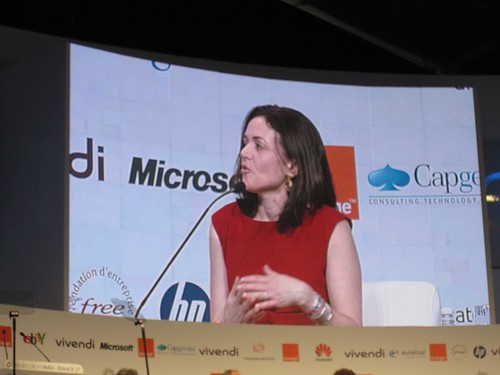Cost plus
NASA’s administrator says cost-plus is a “plague,” just as DoD is giving up on fixed-price development | Acquisition Talk – this reminds me so much of the UK’s ministry of defence. My Dad moved over to the UK to work on the Resolution class of submarines that were designed to carry the Polaris nuclear missile. At the time the Royal Navy paid for these submarines on a cost plus basis which meant that the shipyard advertised for tradesmen in newspapers in Ireland and across the Commonwealth. A lot of people spent a lot of time drinking tea and claiming overtime. One can understand why cost plus could be seen as a plague.
However bad cost plus is, fixed cost doesn’t seem to work either with failed projects and strong disincentives to try innovative solutions. Where NASA is at the moment I can understand why fixed price makes more sense than cost plus. But high innovation programmes like Ares or the Apollo programme would do better under cost plus. One of the current best arguments for cost plus is the likelihood that the Ajax armoured vehicle will never be issued. It is a ‘firm priced’ meaning fixed price contract. Crossrail looks more like a cost plus project, it was a mess, it cost way too much, but it runs. I wonder if the UK ministry of defence will ever consider cost plus again?
China
Op-ed: Why China’s Xi Jinping’s damage control is all about heading off a crisis
EU companies say China units increasingly isolated from HQ by zero-Covid | Financial Times
Consumer behaviour
Emotions are driving Google searches: Health & wellness – Think with Google
Culture
A Visual Guide to the Aztec Pantheon – amazing
Design
“Times Uncertain” : A Font for these Uncertain Times » Third Street
Wuling Hongguang Mini EV Review: Cheap Electric City Car | WIRED – cheap because its components aren’t automotive industry quality. Expect a lot of repairs on a regular basis
Economics
US lawmakers push for more money to counter China in Indo-Pacific | Financial Times
Will boomers cause more inflation? | Financial Times
Miners/iron ore: faltering Chinese demand highlights problems ahead | Financial Times
China food inflation: pork is the make or break factor in controlling prices | Financial Times
Opinion | Boris Johnson Is in Trouble, and So Is Britain’s Conservative Party – The New York Times – First through austerity, then through Brexit and Mr. Johnson, the Conservatives have left Britain in the ruins of their ambition. Each one of their proposed solutions, offered in the name of national renewal, has made the situation worse. No one in the party can escape blame for this baleful legacy. One of the pretenders to Mr. Johnson’s throne — Rishi Sunak, Liz Truss or Jeremy Hunt — may offer a change in style. But a substantial change of course is unlikely to come. An economy predicated on low productivity and low investment, buttressed by a self-defeating lack of seriousness about Britain’s condition, is all the Conservatives seem to be able to offer.– Worthwhile reading in association with this: Grim times lie ahead for UK as inflation combines with low growth | Financial Times
The Controversial Economics of Abortion Law – WSJ
China’s economy didn’t bounce back in the second quarter, survey finds
Ethics
Russian emails appear to show ‘network’ holding $4.5bn assets linked to Putin | Russia | The Guardian – An anti-corruption expert in Russia, who requested anonymity given the political situation in Moscow, said the findings raised questions as to whether there was a level of “common management”. “LLCInvest looks most of all like a cooperative, or an association, in which its members can exchange benefits and property,” they suggested. For nearly two decades, Putin has been accused of secretly accumulating vast wealth through proxies, fuelled by a series of disclosures in leaks such as the Pandora papers about the fortunes of those closest to him. Sergey Kolesnikov, a businessman, claimed 10 years ago that he had been behind a scheme that allowed a group of Russia’s top oligarchs to pool billions of rubles into a type of “investment fund” for the benefit of Putin, who was then serving as prime minister. The claims were denied and Kolesnikov fled from Russia. – Interesting how this has been set up
It’s time for data-first diversity, equity, and inclusion | Fortune – In 2010, using nationally representative data on thousands of individuals in their 40s, I estimated that Black men earn 39.4% less than white men and Black women earn 13.1% less than white women. Yet, accounting for one variable–educational achievement in their teenage years––reduced that difference to 10.9% (a 72% reduction) for men and revealed that Black women earn 12.7 percent more than white women, on average. Derek Neal, an economist at the University of Chicago, and William Johnson were among the first to make this point in 1996: “While our results do provide some evidence for current labor market discrimination, skills gaps play such a large role that we believe future research should focus on the obstacles Black children face in acquiring productive skill.”
Inside the secret, often bizarre world that decides what porn you see | Financial Times – The adult entertainment industry’s de facto regulator isn’t government, international conventions or business itself. It’s Mastercard and Visa
Finance
Exclusive: China’s central bank accepts Ant’s application for financial holding company | Reuters
Wimbledon told to drop HSBC over its support for Hong Kong oppression | Telegraph Online
Is Web3 culture similar to Amway culture? – by Noah Smith
A third of UK ‘buy now, pay later’ users say they can’t handle payments | Buy now, pay later | The Guardian – surprised that this didn’t happen sooner
FMCG
Kellogg to split into three separate food businesses | Financial Times – interesting that they are doing this now.
Hong Kong
Incoming Hong Kong leader John Lee unveils team, while Beijing lays out key expectations | South China Morning Post – John Lee pledges to win people’s trust and make policies that meet demands as State Council approves his governing team. Hong Kong and Macau Affairs Office lays out five expectations for incoming administration, including tackling housing and addressing wealth gap – this explains the big gaps in Lee’s previous policy document. What’s less apparent is how Lee will deliver on these intractable challenges when every previous chief executive haven’t managed to address them
Hong Kongers lament passing of the Jumbo floating palace | Financial Times
In Brussels, tram ads for 25th Hong Kong handover anniversary pulled after complaints – “We were warned by a few customers … that it was not as it should be,” said An Van Hamme, a spokeswoman for Brussels Intercommunal Transport Company (STIB-MIVB, or STIB), adding that complaints had emerged on social media.
Innovation
Europe plays catch up in fab equipment spending eeNews Europe
The origin: why Porsche announced an SUV in 1998 – Porsche Newsroom
D-Wave steps up battle for quantum computers – eeNews Europe
Neuchips Tapes Out Recommendation Accelerator for World-Beating Accuracy – EETimes
Israeli Military Technology Allows Operators to ‘See Through Walls’ | Business Insider
Japan
Internet Explorer shutdown to cause Japan headaches ‘for months’ – Nikkei Asia – rather like the problems that Korea had with the demise of Microsoft ActiveX
Marketing
Edelman Launches Global Gen Z Lab | Edelman – Today, Edelman announces the formation of The Gen Z Lab, a global offering comprising 100 Gen Z employees, a roster of internal and external on-call advisors, and data hub dedicated to generational insights. Under the watch of Edelman’s Global Chief Brand Officer, Jackie Cooper, the Gen Z Lab will lend expertise, perspective and counsel clients looking to effectively engage the Gen Z consumer. In a breakthrough move, Edelman is also appointing the world’s first ZEO as a cultural and creative advisor for the Gen Z Lab. Stepping into this inaugural consultative role from July 1st, will be gender fluid fashion designer, Harris Reed. He will be supported by Amanda Edelman as Gen Z COO. The Gen Z Lab will harness their generation’s perspective and ambitions to solve issues such as race and diversity, sustainability, and climate change, and align with brand interests to become catalysts for change. – I’d totally trust them managing my brand reputation…………….. NOT!
Media
How Disney lost Florida | Financial Times
Sony to start making records again 30 years after abandoning vinyl | Japan | The Guardian
Netflix meets with Google in Cannes to discuss its ad business | Ad Age – Alphabet will tear their face off given YouTube’s Red subscription service, pirated content and film rental service
Online
Klick Wire 72% of physicians follow peers on social media
Anonymity Online Is In – The Atlantic
Is Google Dying? Or Did the Web Grow Up? – The Atlantic – one of a number of articles I have seen lamenting Google’s decline in search performance. More related content here
Googlebot will crawl and index the first 15MB of content per page
As China shuts out the world, internet access from abroad gets harder too – Los Angeles Times
China wants to censor all social media comments | MIT Technology Review – this should be interesting for engagement rates
China’s internet watchdog launches cybersecurity investigation into country’s largest academic research database CNKI | South China Morning Post – The Cyberspace Administration of China started its investigation on the grounds that CNKI holds a large amount of data on national defence, telecoms and finance. The privately-owned firm also has ‘sensitive information’ related to the country’s major projects and development of core technologies
Retailing
Meta’s new digital fashion marketplace will sell Prada, Balenciaga and Thom Browne | Vogue Business – Balenciaga CEO Cédric Charbit in a release. “Web3 and Meta are bringing unprecedented opportunities for Balenciaga, our audience and our products, opening up new territories for luxury.” Balenciaga, along with Prada and Thom Browne, is among the first to sign on to sell digital fashion in a new Meta-created avatar store where people can buy clothing for their avatars to wear on Instagram, Facebook and Messenger. Eventually, other designers will be able to independently offer digital clothing for sale in the marketplace. The items for sale in the avatar store will range from $2.99 to $8.99 to start. A Meta spokesperson said that it did “not have details to share” on if or how it would share revenue with designers. Meta CEO Mark Zuckerberg and Instagram VP of fashion partnerships Eva Chen, who announced the updates via Instagram Live on Friday, said these capabilities will be available next week, starting with the US, Canada, Thailand and Mexico. – Worthwhile reading this piece also: Inside The Metaverse Strategies Of L’Oréal And LVMH | The Drum
Two Ways Amazon Misjudged Its Workforce Pipeline | Revue and more here Amazon’s workforce turnover is so high that it could run out of people to hire by 2024 – Vox
Ocado aims to raise £575m from investors to fund tech arm expansion | Ocado | The Guardian
What Chinese media reveals about Shein’s secretive operations – Rest of World – There are two main kinds of suppliers: “free on board,” those that make simple designs they haven’t devised themselves, and “original design manufacturers,” those that do both. They all feed into Shein’s sprawling manufacturing execution system (MES). The designer-suppliers will find pictures online and send a selection to Shein’s internal buyers for consideration; the buyer and their manager settle on a final pool. Once samples have been received, there might be two, or even three, rounds of changes before manufacturing can commence. (The entire time, everything needs to be recorded in the MES — materials, pricing, even chat logs — something suppliers balk at, because, if the deal falls through, all the information sits in Shein’s records, and there’s nothing to stop them from producing it elsewhere.) – I could see Amazon acting in a similar way
Security
US TikTok User Data Has Been Repeatedly Accessed From China, Leaked Audio Shows
China’s Expanding Surveillance State: Takeaways From a NYT Investigation – The New York Times – DNA, iris scan samples and voice prints are being collected indiscriminately from people with no connection to crime. The police in China are starting to collect voice prints using sound recorders attached to their facial recognition cameras. In the southeast city of Zhongshan, the police wrote in a bidding document that they wanted devices that could record audio from at least a 300-foot radius around cameras. Software would then analyze the voice prints and add them to a database. Police boasted that when combined with facial analysis, they could help pinpoint suspects faster. In the name of tracking criminals — which are often loosely defined by Chinese authorities and can include political dissidents — the Chinese police are purchasing equipment to build large-scale iris-scan and DNA databases. The first regionwide iris database — which has the capacity to hold iris samples of up to 30 million people — was built around 2017 in Xinjiang, home to the Uyghur ethnic minority. Online news reports show that the same contractor later won other government contracts to build large databases across the country. The company did not respond to The Times’s request for comment. The Chinese police are also widely collecting DNA samples from men. Because the Y chromosome is passed down with few mutations, when the police have the y-DNA profile of one man, they also have that of a few generations along the paternal lines in his family. Experts said that while many other countries use this trait to aid criminal investigations, China’s approach stands out with its singular focus on collecting as many samples as possible. – and more here: Police in China Stalk Citizens With Surveillance That Predicts Future Crime
The corporate feud over satellites that pitted the west against China | Financial Times
EU champion Airbus has deep links to Chinese military industrial complex, report says – POLITICO
Japanese city loses memory drive with information on all 460,000 residents | The Japan Times
Shadowy Strava users spy on Israeli military with fake routes in bases | Espionage | The Guardian
Style
Nike/China: consumer market is yet to fully open | Financial Times – but this is very much at odds with similar businesses in China like Anta (who own Solomon, Arcteryx and other western brands as well their own China based Anta brand)
Taiwan
Taiwan general charged in China spying case – Hong Kong Free Press HKFP – Taiwan seems to be doing a good job in counterespionage but China is relentless
Web of no web
Mark Zuckerberg lays out the future of Meta | Yahoo! Finance


